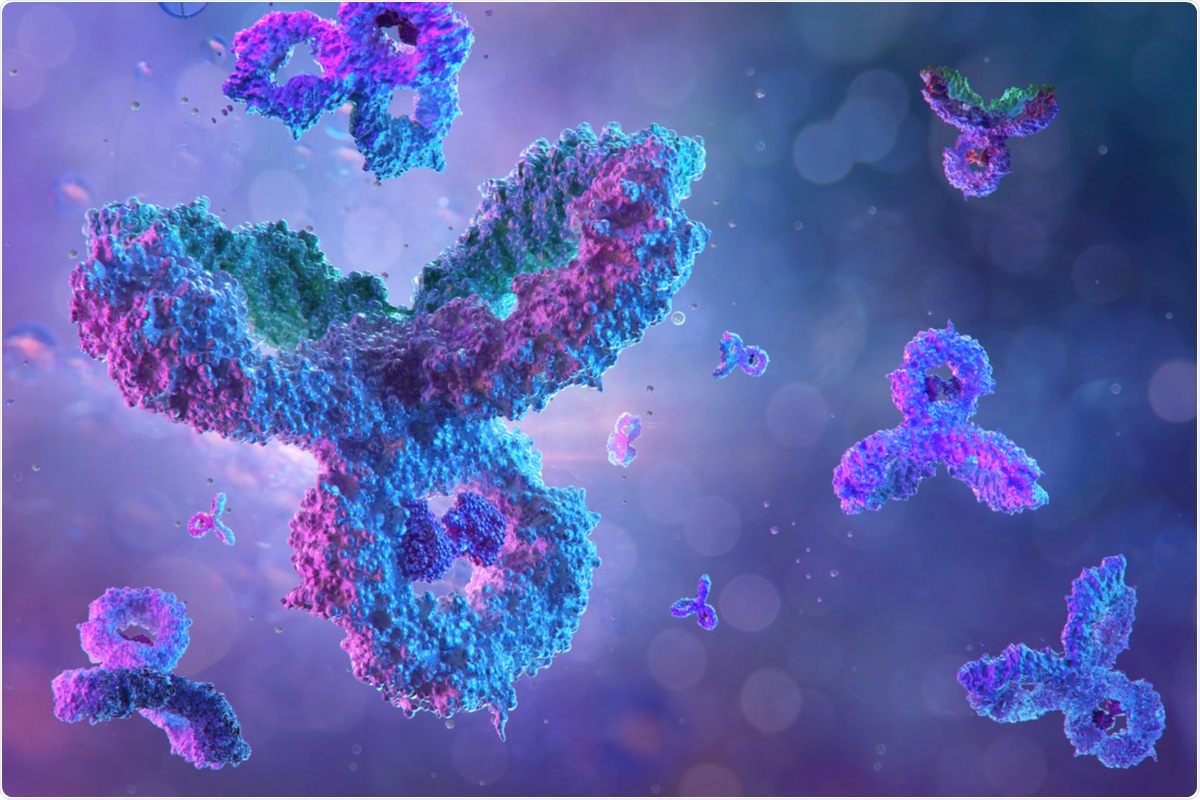A team of scientists from the University of Valencia and INCLIVA Health Research Institute, Spain, has recently investigated the durability of immune responses specifically developed against severe acute respiratory syndrome coronavirus 2 (SARS-CoV-2), the causative pathogen of coronavirus disease 2019 (COVID-19). The study findings reveal that severe COVID-19 patients develop detectable T cell-mediated responses about 3 months after the onset of symptoms. Moreover, the study reveals that the levels of IgG-specific anti-SARS-CoV-2 antibodies decline over time in these patients. The study is currently available on the medRxiv* preprint server.


 This news article was a review of a preliminary scientific report that had not undergone peer-review at the time of publication. Since its initial publication, the scientific report has now been peer reviewed and accepted for publication in a Scientific Journal. Links to the preliminary and peer-reviewed reports are available in the Sources section at the bottom of this article. View Sources
This news article was a review of a preliminary scientific report that had not undergone peer-review at the time of publication. Since its initial publication, the scientific report has now been peer reviewed and accepted for publication in a Scientific Journal. Links to the preliminary and peer-reviewed reports are available in the Sources section at the bottom of this article. View Sources
Background
Since the emergence of the COVID-19 pandemic, many studies have been conducted to thoroughly investigate the pattern and durability of SARS-CoV-specific adaptive immune responses in COVID-19 recovered patients. These studies are particularly important to determine whether SARS-CoV-2-specific immunity developed due to natural infection or vaccination can provide long-term protection against reinfection.
According to the available literature, neutralizing antibodies developed against the receptor-binding domain (RBD) of the SARS-CoV-2 spike protein have the highest potency to provide protection. Similarly, CD4+ and CD8+ T cells targeting the spike, membrane, and nucleocapsid proteins of SARS-CoV-2 have been found predominantly in convalescent COVID-19 patients.
Current study
The current study was designed to evaluate the specificity and durability of anti- SARS-CoV-2 immune responses in 58 COVID-19 recovered patients who had been hospitalized because of severe COVID-19-related complications. The SARS-CoV-2-specific immune responses were measured for a period of up to 6 months after the onset of symptoms. Specifically, IgG-specific antibodies developed against the spike RBD and SARS-CoV-2-reactive IFNγ-producing CD4+ and CD8+ T cells were estimated as a measure of adaptive immune responses.
Important observations
The patients enrolled in the study had a severe form of COVID-19 with bilateral pneumonia. About 60% of all patients had comorbidities, including diabetes, hypertension, asthma, chronic lung disease, dyslipidemia, or cancer.
T cell-mediated immune response
About 29% and 10% of enrolled COVID-19 recovered patients showed detectable levels of SARS-CoV-2 spike/membrane protein-reactive CD4+ and CD8+ T cells, respectively, on an average 84 days after the onset of symptoms.
IgG antibody response
The serum samples obtained from 35 patients were analyzed for IgG-specific antibodies developed against the RBD of the viral spike protein. Of these patients, about 60% exhibited detectable levels of SARS-CoV-2-specific antibodies on an average 118 days after the onset of symptoms. However, the levels of SARS-CoV-2-specific antibodies were found to decline over time in all COVID-19 recovered patients.
Of all patients who exhibited SARS-CoV-2-specific antibody responses, about 48% displayed T cell-mediated immune responses against SARS-CoV-2. About 35% of patients who could not develop SARS-CoV-2-specific antibody response had detectable levels of CD4+ T cells in the serum. However, no correlation was observed between the antibody-mediated and T cell-mediated immune responses.
Regarding demographic, clinical, and biological characteristics, no significant difference in T cell response was observed between patients who had been admitted to the intensive care unit (ICU) or other hospital wards. In contrast, the likelihood of developing detectable T cell responses was considerably low in patients with comorbidities.
Unlike T cell response, the presence of comorbidities did not influence the possibility of developing SARS-CoV-2-specific antibody response. However, COVID-19 recovered patients who had been admitted to ICU were more likely to develop antibody responses against SARS-CoV-2.
Study significance
According to the study findings, only a limited number of COVID-19 recovered patients develop T cell responses against SARS-CoV-2. Moreover, the T cell responses become undetectable after 130 days of COVID-19 diagnosis.
A comparatively higher number of patients exhibit SARS-CoV-2-specific antibody response within 2 to 5 months after COVID-19 diagnosis. However, the antibody response shows a declining trend over time.
Interestingly, the presence of comorbidities is found to influence the T cell response but not the antibody response; whereas, disease severity is found to influence the antibody response but not the T cell response.
Another interesting observation is that no association has been observed between the systemic inflammatory response and SARS-CoV-2-specific antibody or T cell response in COVID-19 recovered patients.

 This news article was a review of a preliminary scientific report that had not undergone peer-review at the time of publication. Since its initial publication, the scientific report has now been peer reviewed and accepted for publication in a Scientific Journal. Links to the preliminary and peer-reviewed reports are available in the Sources section at the bottom of this article. View Sources
This news article was a review of a preliminary scientific report that had not undergone peer-review at the time of publication. Since its initial publication, the scientific report has now been peer reviewed and accepted for publication in a Scientific Journal. Links to the preliminary and peer-reviewed reports are available in the Sources section at the bottom of this article. View Sources